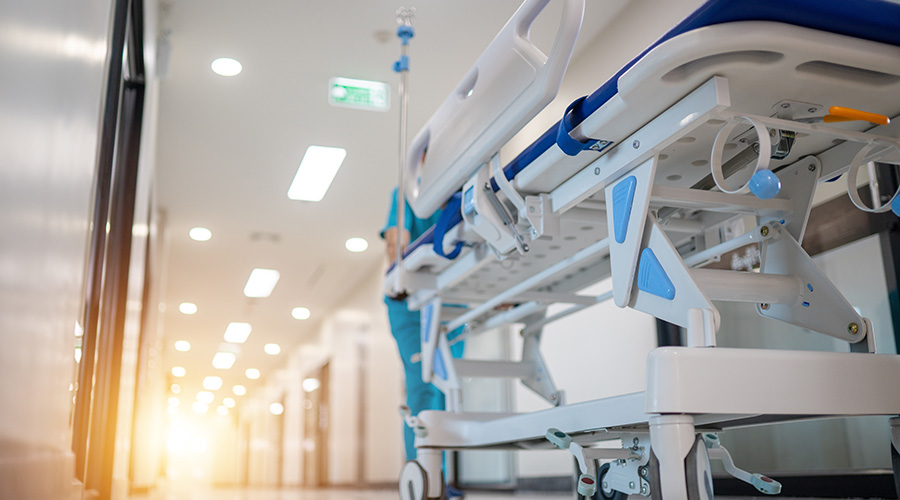From facility-specific protocols to regulations necessary for hospital accreditation, employee knowledge plays a huge role in maintaining a hospital’s compliance
Healthcare administrators know the importance of staying current on industry knowledge and regulations. From facility-specific protocols to regulations necessary for hospital accreditation, employee knowledge plays a huge role in maintaining a hospital’s compliance.
It’s vital that these expectations not end with staff directly employed by the hospital. Your security staff must be well-informed and up-to-date on all necessary industry information. Quality security providers with healthcare experience can work hand-in-hand with a hospital to ensure that the security team is knowledgeable:
• Regulatory/accrediting agencies and standards – CMS regulations and accrediting agency standards are always subject to change. Your security team should have a general knowledge of these agencies, with specific knowledge of the regulations that impact security services, and it is important that your security team verify the current verbiage before implementing any procedural changes.
• Training plans – Security providers should identify the training employees (including security officers, supervisors and managers) need to perform their duties and maintain regulatory compliance. Training plans should include the courses required, the order and frequency in which they must be taken, and the method of evaluating the effectiveness of the course and the understanding of the material. Training must be consistent and ongoing beyond the initial orientation, and include industry-specific and site-specific training.
• Evaluations – Security officers should be tested regularly using a combination of training exams and hands-on simulations. Examples include abduction drills, response drills, evacuations, panic alarms and "stat" calls.
• Competency folders – Security providers should maintain competency folders for each employee on site to adhere to and comply with CMS regulations and accrediting agency standards. These should include, among other items, a custom on-the-job checklist and documentation of ongoing training, assessments and performance evaluations.
An experienced, professional security team with healthcare expertise should understand the importance of maintaining timely and relevant knowledge of the industry and will be well-equipped to embrace the environment of care and help you succeed in your regulatory compliance goals.
Bukowski is the vice president of healthcare, AlliedBarton Security Services.

 Grounding Healthcare Spaces in Hospitality Principles
Grounding Healthcare Spaces in Hospitality Principles UC Davis Health Selects Rudolph and Sletten for Central Utility Plant Expansion
UC Davis Health Selects Rudolph and Sletten for Central Utility Plant Expansion Cape Cod Healthcare Opens Upper 2 Floors of Edwin Barbey Patient Care Pavilion
Cape Cod Healthcare Opens Upper 2 Floors of Edwin Barbey Patient Care Pavilion Building Sustainable Healthcare for an Aging Population
Building Sustainable Healthcare for an Aging Population Froedtert ThedaCare Announces Opening of ThedaCare Medical Center-Oshkosh
Froedtert ThedaCare Announces Opening of ThedaCare Medical Center-Oshkosh